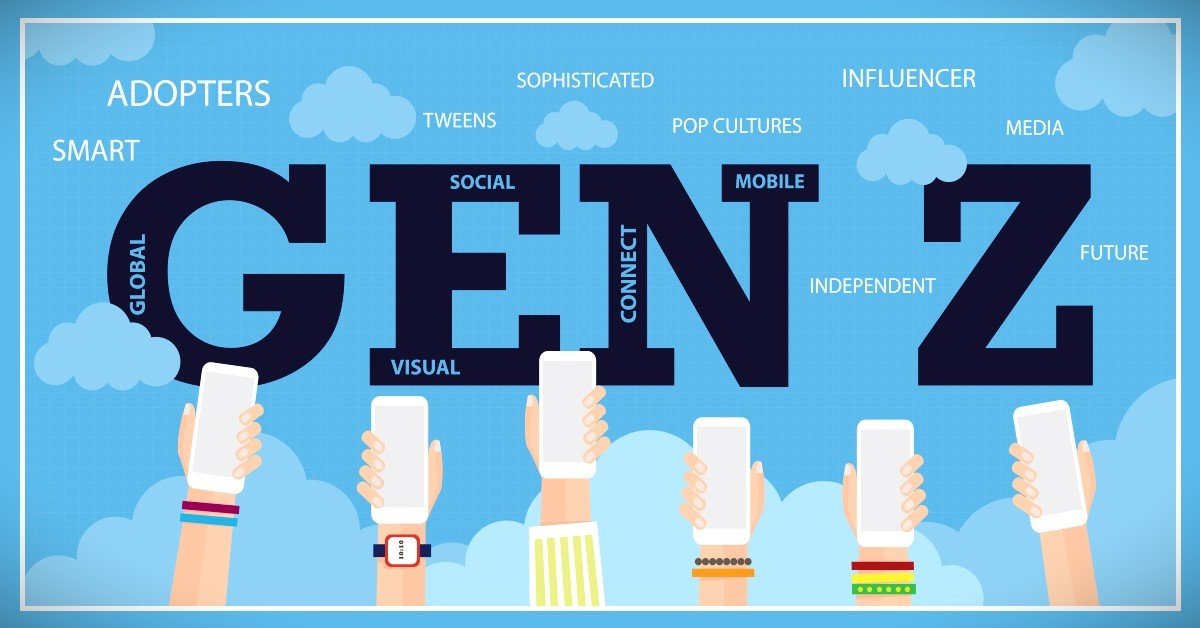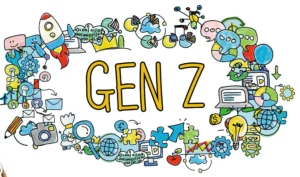UNDERSTANDING THE CHALLENGES OF ENGAGING WITH GEN Z: Navigating Anger and Pride

In today’s rapidly changing world, generational dynamics present unique challenges, especially when it comes to understanding and engaging with Generation Z. Born between the mid-1990s and early 2010s, Gen Z is the first generation to grow up with the internet and digital technology at their fingertips. This constant connectivity has profoundly shaped their worldview, behaviour, and interactions. Among the many facets of their character, two stand out prominently: their inclination to anger and pride. Understanding these traits is essential for fostering effective communication and positive relationships with this influential cohort.

THE ROOTS OF ANGER 1. Global Awareness and Social Justice Gen Z is deeply aware of global issues such as climate change, social justice, economic inequality, and political instability. This heightened awareness often leads to frustration and anger, particularly when they perceive a lack of action or progress. Their access to information via social media and online news fuels their desire for change and amplifies their dissatisfaction with the status quo.
2. Economic Uncertainty Many Gen Zs are entering adulthood during a time of significant economic uncertainty. They face challenges such as student debt, high living costs, and job market volatility. These economic pressures contribute to their stress and anger as they feel the weight of financial instability and the fear of an uncertain future.
3. Mental Health Struggles Mental health issues are prevalent among Gen Z, with many reporting high levels of anxiety, depression, and stress. The pressure to succeed academically and professionally, combined with the pervasive influence of social media, exacerbates these issues. The struggle to maintain mental well-being often manifests as anger and frustration.
THE EXPRESSION OF PRIDE 1. Identity and Individuality Gen Z strongly emphasises individual identity and self-expression. They take pride in their unique traits, experiences, and perspectives. This pride in individuality often translates into a desire for recognition and validation, both online and offline. Their sense of self is closely tied to their digital presence, sometimes leading to perceived arrogance or overconfidence.
2. Activism and Advocacy Pride in beliefs and values is another defining characteristic of Gen Z. They are passionate advocates for causes they care about and are not afraid to voice their opinions. However, this pride in their activism can sometimes come across as combative or confrontational, especially when they feel their values are being challenged or dismissed.
3. Technological Proficiency Gen Z, having grown up in the digital age, is highly proficient with technology. They take pride in navigating and leveraging digital tools and platforms. This technological confidence can sometimes be perceived as superiority, particularly by older generations who may not be tech-savvy.

NAVIGATING THE CHALLENGES 1. Open and Respectful Communication Effective communication is critical to bridging the generational gap. It is vital to listen actively to Gen Z’s concerns and perspectives without dismissing or undermining them. Respectful dialogue fosters mutual understanding and helps address the root causes of their anger and pride.
2. Empathy and Support Recognising Gen Z’s unique challenges is crucial. Providing emotional support and understanding their struggles with mental health, economic uncertainty, and social pressures can help alleviate some of their frustration. Creating a supportive environment where they feel heard and valued is essential.
3. Encouraging Constructive Outlets Channelling Gen Z’s anger and pride into constructive outlets can be highly beneficial. Encouraging them to engage in meaningful activities, such as community service, activism, and creative pursuits, allows them to express their emotions positively. Providing opportunities for them to make a tangible impact can reduce feelings of helplessness and frustration.
4. Promoting Collaboration and Inclusion Fostering a culture of collaboration and inclusion helps integrate Gen Z’s unique skills and perspectives into broader societal efforts. Recognising their contributions and encouraging intergenerational cooperation can build bridges and reduce conflict. Creating spaces where diverse voices are heard and valued promotes unity and shared goals.
5. Leveraging Their Strengths Acknowledging and leveraging Gen Z’s strengths, such as their technological proficiency and passion for social justice, can lead to innovative solutions and positive change. Embracing their digital expertise and encouraging activism can benefit organisations, communities, and society.
CONCLUSION In Nigeria, it seems the widespread frustration earlier, mentioned as common to Gen Zs, is being vented in many negative ways. The anger leads to online abuses and disrespect of elders. It is common for Gen Zs to think they know it all and that the previous generations have failed.
This perception can lead to a form of self-righteousness that makes many Gen Z incapable of being corrected and can also cause a disregard for facts and data that does not promote their predetermined emotional posture. The elders must show more understanding and patience when dealing with this crucial population cohort.
Engaging with Generation Z requires a nuanced understanding of their anger and pride. By recognising the roots of these emotions and addressing them with empathy, respect, and support, we can foster positive relationships and harness their potential for positive change. They are, after all, our future.
Gen Z’s passion, individuality, and technological prowess are valuable assets that can drive progress and innovation in our rapidly evolving world when adequately understood and channelled.

THE ROOTS OF ANGER 1. Global Awareness and Social Justice Gen Z is deeply aware of global issues such as climate change, social justice, economic inequality, and political instability. This heightened awareness often leads to frustration and anger, particularly when they perceive a lack of action or progress. Their access to information via social media and online news fuels their desire for change and amplifies their dissatisfaction with the status quo.
2. Economic Uncertainty Many Gen Zs are entering adulthood during a time of significant economic uncertainty. They face challenges such as student debt, high living costs, and job market volatility. These economic pressures contribute to their stress and anger as they feel the weight of financial instability and the fear of an uncertain future.
3. Mental Health Struggles Mental health issues are prevalent among Gen Z, with many reporting high levels of anxiety, depression, and stress. The pressure to succeed academically and professionally, combined with the pervasive influence of social media, exacerbates these issues. The struggle to maintain mental well-being often manifests as anger and frustration.
THE EXPRESSION OF PRIDE 1. Identity and Individuality Gen Z strongly emphasises individual identity and self-expression. They take pride in their unique traits, experiences, and perspectives. This pride in individuality often translates into a desire for recognition and validation, both online and offline. Their sense of self is closely tied to their digital presence, sometimes leading to perceived arrogance or overconfidence.
2. Activism and Advocacy Pride in beliefs and values is another defining characteristic of Gen Z. They are passionate advocates for causes they care about and are not afraid to voice their opinions. However, this pride in their activism can sometimes come across as combative or confrontational, especially when they feel their values are being challenged or dismissed.
3. Technological Proficiency Gen Z, having grown up in the digital age, is highly proficient with technology. They take pride in navigating and leveraging digital tools and platforms. This technological confidence can sometimes be perceived as superiority, particularly by older generations who may not be tech-savvy.

NAVIGATING THE CHALLENGES 1. Open and Respectful Communication Effective communication is critical to bridging the generational gap. It is vital to listen actively to Gen Z’s concerns and perspectives without dismissing or undermining them. Respectful dialogue fosters mutual understanding and helps address the root causes of their anger and pride.
2. Empathy and Support Recognising Gen Z’s unique challenges is crucial. Providing emotional support and understanding their struggles with mental health, economic uncertainty, and social pressures can help alleviate some of their frustration. Creating a supportive environment where they feel heard and valued is essential.
3. Encouraging Constructive Outlets Channelling Gen Z’s anger and pride into constructive outlets can be highly beneficial. Encouraging them to engage in meaningful activities, such as community service, activism, and creative pursuits, allows them to express their emotions positively. Providing opportunities for them to make a tangible impact can reduce feelings of helplessness and frustration.
4. Promoting Collaboration and Inclusion Fostering a culture of collaboration and inclusion helps integrate Gen Z’s unique skills and perspectives into broader societal efforts. Recognising their contributions and encouraging intergenerational cooperation can build bridges and reduce conflict. Creating spaces where diverse voices are heard and valued promotes unity and shared goals.
5. Leveraging Their Strengths Acknowledging and leveraging Gen Z’s strengths, such as their technological proficiency and passion for social justice, can lead to innovative solutions and positive change. Embracing their digital expertise and encouraging activism can benefit organisations, communities, and society.
CONCLUSION In Nigeria, it seems the widespread frustration earlier, mentioned as common to Gen Zs, is being vented in many negative ways. The anger leads to online abuses and disrespect of elders. It is common for Gen Zs to think they know it all and that the previous generations have failed.
This perception can lead to a form of self-righteousness that makes many Gen Z incapable of being corrected and can also cause a disregard for facts and data that does not promote their predetermined emotional posture. The elders must show more understanding and patience when dealing with this crucial population cohort.
Engaging with Generation Z requires a nuanced understanding of their anger and pride. By recognising the roots of these emotions and addressing them with empathy, respect, and support, we can foster positive relationships and harness their potential for positive change. They are, after all, our future.
Gen Z’s passion, individuality, and technological prowess are valuable assets that can drive progress and innovation in our rapidly evolving world when adequately understood and channelled.




